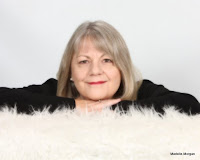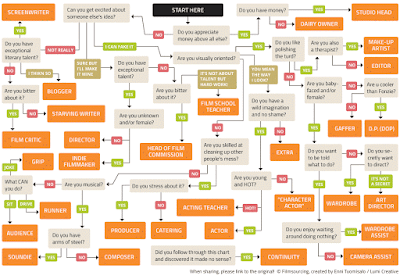by Madelle Morgan
Can Rachel, a chambermaid at a luxury resort, raise the
tuition for film school by September?
Or will she be stuck in a service job for
life?
This is the stage of life when New Adults are trying to break into careers for which they studied and trained. However, their timing sucks. Their 21st century reality is contract work, unpaid internships, downsizing, and limited job opportunities. They’re frustrated at every turn.
Some start their own businesses. Some go on to grad school. Some settle in jobs they hate but need in order to pay off student loans.
As the parent of a millennial, I celebrated when my son with two degrees finally snagged a contract in his field that paid more than minimum wage. It’s tough in the real world, but there’s hope.
Rather than focus on New Adults' angst and frustration, I wrote a fun, light story about a twenty-something’s journey to a career that’s perfect for her. And it turns out that it’s not the career she originally wanted.
Caught on Camera Blurb
To achieve her dream of working as a camera operator on Hollywood film sets, star
struck chambermaid Rachel Lehmann needs $35,000 for film school tuition by the
end of the summer.
When she’s asked to fill in for a missing bridesmaid at
a movie star’s wedding and pretend to be the bride's cousin, it’s
her big chance to secretly take photos of celebrities and sell them to the
entertainment media! Then Mickey, one of the groomsmen, sweeps her off her
feet.
Mickey McNichol, talent agent to the stars, believes
everyone in show business is out for what they can get. When he falls for the
bride’s "cousin", he thinks he’s finally met a beautiful woman he can
trust. But if Rachel betrays the wedding party, Mickey will ensure she never
works in Hollywood.
Excerpt: Rachel is
seated with the groomsmen and other bridesmaids at the wedding rehearsal dinner.
Mickey lay
down his fork, having made his salad disappear in four bites. Rachel ruefully
inspected her own small but artistically presented endive, pear, and Roquefort
salad sprinkled with walnut crumbs.
In a normal day, she consumed carb-loaded meals
to replace thousands of calories burned in a long, labor-intensive shift. That
afternoon’s light spa lunch and a shrimp on a skewer left her faint with hunger.
She swiftly polished off the delicious salad, then squinted greedily at
Tiffany’s untouched plate.
“I admire a
woman who enjoys food and doesn’t mind showing it,” Mickey murmured for her
ears alone. “So many women at parties appear to survive on champagne and
caviar.”
Asta snagged
one of the fresh-baked multigrain rolls from a silver basket and slathered it
with a ball of iced butter.
“Except Asta,
of course,” Mickey continued. “And now you.” Cool fingers lightly tapped her
bare thigh under the tablecloth.
At the
delicious contact, Rachel’s brain emptied of all coherent thought. She blurted
the truth. “We’re working women. I’d fade away to nothing if I ate like this
every day.” She indicated her empty plate.
Mickey angled
to face her. “What is it that you do, exactly?”
Oh my gods. She’d blithely set herself up for that question.
She slunk low in her chair, quavered, “Do?”
“Yeah,” Wade said
to the table at large. “What does Candy’s cousin do in Toronto?”
The men’s
attention fastened on Rachel. Tiffany’s green-eyed glare spit daggers.
Asta leaned
forward, chin cupped in one palm. “Candy never mentioned you before today. But
then Candy has been notoriously closemouthed about her own sister. Tell us
about yourself.”
Desperately stalling,
Rachel licked a crumb of strong Roquefort blue cheese off her upper lip. That
spring she’d completed a two-year community college Creative Photography program
with top grades that garnered early acceptance into Toronto’s prestigious, private
film school for the fall semester.
She’d supported herself while attending
college with a part time minimum wage job as an evening room attendant in a
three-star downtown hotel, and with summer jobs in the Muskoka resorts. Candy’d
be furious if she revealed how she earned her living.
Nervy, Rachel
twisted the cord holding her camera pendant and opted for the truth. “I’ve been
accepted into Toronto Film School to study cinematography, starting in
September. Wade, what do you do?”
Wade chuckled,
apparently amused by her transparent attempt to deflect prying questions. Good
natured, he played along.
“I’m an entertainment attorney. Producers hire me to secure
rights to a book or screenplay, negotiate equity financing deals, and vet
distribution licenses for film projects. I have the satisfaction of helping independent
films I believe in get green-lighted. No money, no movie.”
“Do any Academy
Awards decorate your mantle?”
He shook his
head in exaggerated dismay. “Sadly, no. Producers get the screen credit.” He
threw out his hands, palms up. “I merely bask in the reflected glory.”
Rachel decided
she liked Wade’s wry humor. She shifted her attention to Garth, ready to inquire
about his profession, but Asta broke in.
“Rachel, you
didn’t answer Wade’s question. What do you do now?”
Rachel
stiffened. Her lips parted and resealed a couple of times—a fish out of water. She
had nothing.
Subscribe
to Madelle’s blog to be
alerted to the release of Seduced by
the Screenwriter, Hollywood in
Muskoka series, Book 2, in December, 2017.
About
Madelle
Madelle Morgan is a
Canadian author who writes romance with heat, heart and humor. Her 2016
release, Caught on Camera, is a
Hollywood wedding romance set in Muskoka, Canada—summer playground of the rich
and famous.









